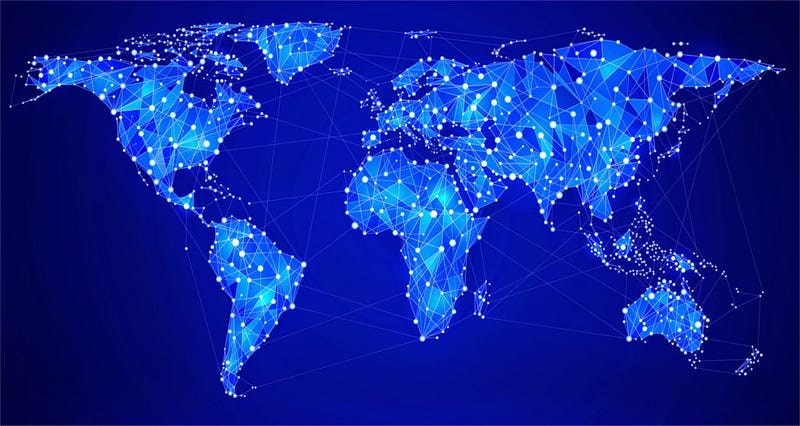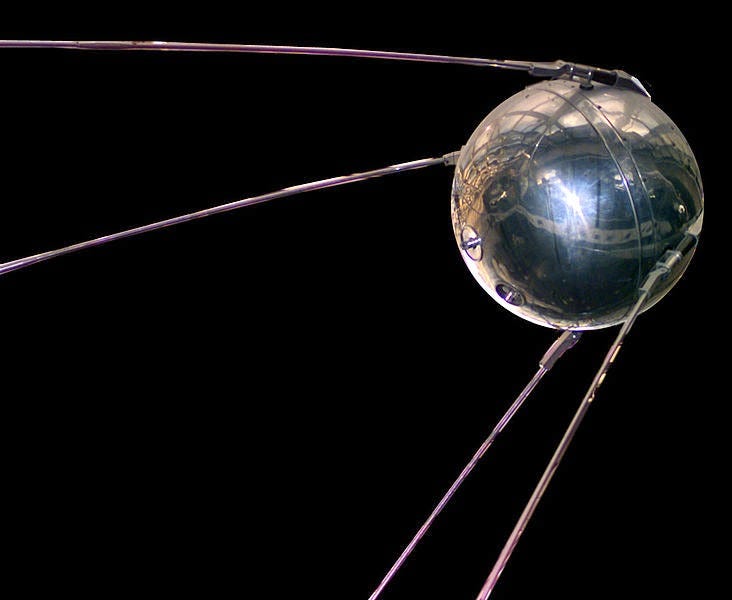The True Origins of the Internet: Separating Fact from Fiction
Written on
Chapter 1: The Misconception of Al Gore
Many of us are familiar with the claim that Al Gore declared he invented the internet. However, this is a misunderstanding; he never explicitly claimed to have "invented" it. This confusion originated from a 1999 CNN interview where Gore stated he "took the initiative in creating the internet," when asked about his differences from his opponent, Bill Bradley, in the race for the Democratic nomination. So, if he didn’t create it, who is responsible?

The inception of the internet cannot be attributed to a single individual but rather a series of key developments. It began with President Dwight D. Eisenhower's establishment of the Advanced Research Projects Agency (ARPA) in 1958, initiated in response to the Soviet Union's launch of Sputnik, the first artificial satellite. This agency aimed to advance technology and science beyond military needs and to mitigate future technological surprises.
Section 1.1: The Early Days of Computing
During the 1950s, computers were massive, utilized punch cards, and magnetic tape, and lacked networking capabilities. Each computer operated in isolation, unable to share data due to limited processing power, which restricted their efficiency and the dissemination of information.
In 1969, a significant milestone was achieved. ARPA collaborated with Bolt, Beranek, and Newman (BBN) to create ARPANET, the first network of its kind. Initially, ARPANET was linked by four Interface Message Processors (IMPs), which functioned as gateways—what we now refer to as routers.
Subsection 1.1.1: The Birth of ARPANET
On October 29, 1969, history was made when the first computer-to-computer message was sent. A programmer at UCLA attempted to transmit the word "login" to Stanford, but only the letters "L" and "O" made it through before the system crashed. After a reset, they successfully sent the complete message.

By December 1969, the four-node network was fully operational, laying the groundwork for how the internet functions today. In the 1970s, researchers found a way to link ARPANET with the packet radio network (PRNET), enabling wireless communications. By 1973, both networks were interconnected, and a satellite network (SATNET) was added in 1977, linking the U.S. and Europe. This interconnectivity gave rise to the term "Internet."
Section 1.2: The Evolution into the World Wide Web
The 1990s marked a pivotal moment in the internet's evolution with Tim Berners-Lee's invention of the World Wide Web, which simplified navigation across the internet. This development is often confused with the internet itself; while the internet is a network of networks, the World Wide Web is a method for accessing information across these networks. The "http" (Hypertext Transfer Protocol) was one of the navigation tools that Berners-Lee created to help users traverse the internet.
The conclusion is clear: no single person can claim to have invented the internet. It is the result of numerous individuals building upon one another's innovations. If anyone deserves acknowledgment, it might be the Soviet Union for launching Sputnik in 1957—a catalyst for the internet’s creation. Without that event, this article might not have been possible. Happy surfing!
Chapter 2: Exploring Internet Innovations
The first video titled "Who Invented the Internet? And Why?" provides insights into the key figures and events that shaped the internet.
The second video, "Who Invented the Internet? | History of the Internet," dives deeper into the historical context and evolution of the internet.